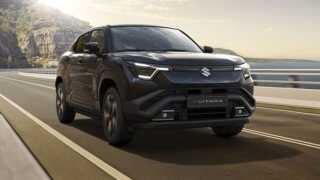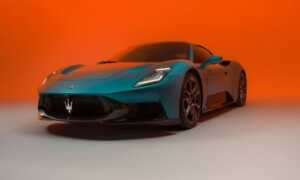Share via: Sales of electric passenger vehicles in India have increased dramatically, with almost doubling up recently. Yet, even with this impressive growth, EVs continue to account for only around 4.5 per cent of the overall passenger vehicle market. …Read More The Maruti Suzuki e Vitara is expected to be launched in FY26 View Personalised Offers on Check Offers The path to mass adoption of electric vehicles (EVs) in India depends heavily on the establishment of strong public charging infrastructure. Range anxiety is a strong deterrent that does not allow prospective customers from opting for EVs as their main household cars, as reported by Partho Banerjee, Senior Executive Officer- Marketing and Sales, Maruti Suzuki India. EV sales growth: Promising but limitedSales of electric passenger vehicles in India have increased dramatically, with almost doubling up recently. Yet, even with this impressive growth, EVs continue to account for only around 4.5 per cent of the overall passenger vehicle market. This is a steep increase from the earlier 2.4 per cent market share, representing a 100 per cent increase in volume. But Banerjee doubts if this growth can hold in the long term without overcoming underlying problems. Also Read : Maruti Suzuki Grand Vitara Phantom Blaq Edition unveiled to mark 10 years of Nexa Customers hesitant to make EVs their primary choicePart of the biggest hurdles is consumer attitude. Banerjee points out that a lot of consumers are reticent to purchase an EV as their first, or sole, vehicle, largely out of fear of range anxiety and convenience when charging. “A buyer who needs one vehicle is usually unwilling to make an EV his or her single car,” he says. That hesitation is what requires greater consumer confidence, which cannot be generated through better vehicle technology alone. Infrastructure gapAlthough car manufacturers have taken care of the driving range problem by providing models with about 500 kilometers on one charge, public charging points are still limited. Banerjee reports that Maruti Suzuki is working actively to have EV charging stations at 100 Indian cities. But highway networks, which are important for long-distance commutes, do not yet have proper fast-charging facilities, which keeps the practicality of EVs restricted to most consumers. Also watch: Maruti Suzuki plans EV dominance in India | Maruti’s EV strategy revealed | e Vitara launch soon Consumer choice and technology diversityBanerjee believes it is essential to allow the consumer to select the technology most suited to themselves. He believes that no technology—battery electric vehicles (BEVs), hybrids, or whatever—should not be advantaged more by policy or market consideration. “It should be the consumer who chooses what meets their lifestyle,” he argues, making his way through the evolving automotive industry in India. Tax benefits and hybrid technologyIn current practice, battery electric vehicles attract a relatively low tax of 5 per cent GST, whereas hybrid cars are taxed far more, approximately 43 per cent. Maruti Suzuki is developing the technically strong hybrid vehicles Grand Vitara and Invicto and offers the customer a level of familiarity, but also achieves a balance of efficiency and technology. Get insights into Upcoming Cars In India, Electric Vehicles, Upcoming Bikes in India and cutting-edge technology transforming the automotive landscape. First Published Date: 11 Aug 2025, 07:00 am IST
Source: hindustantimes.com






